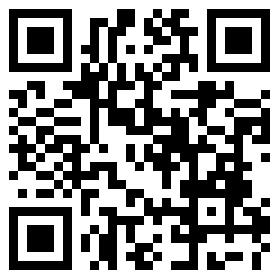Home buyers not scared off by bubble talk
2015-07-06Reserve Bank governor Glenn Stevens is “very concerned” about Sydney’s “crazy” house prices, Treasury secretary John Fraser thinks the city is “unequivocally” in a housing bubble, and words like “bloodbath” are being thrown around.

The survey of 1000 Australians, carried out by independent research company Pureprofile, found more than one third (35.6 per cent) of people planned to purchase an investment property in the next five to 10 years.
More than half (56.7 per cent) claimed interest rates would not shift again until consumer sentiment improved, and only a third believed a rise would happen within the next 12 months. Nearly one third (31.5 per cent) of respondents said property investment was a necessary element of retirement.
Citiwide Homeloans CEO Patrick Marion said the research showed people still believe home ownership is a priority and life and a good investment option.
“Interest rates are the lowest in decades and property prices are still growing in most states, so right now talk of the bubble is falling short for consumers,” he said.
Mr. Marion conceded there would be a correction in overinflated markets like Sydney and Melbourne, but said he didn’t think a dramatic bust was looming as some commentators have argued.
People are finding it harder to get a loan than 12 months ago, he said, as prices have risen but incomes haven’t kept pace. With the Australian Prudential Regulation Authority bringing in tighter lending rules for investors, he said it should make things easier for first-home buyers.
“All these speculators and investors geared to the hilt will find it a lot tougher, so hopefully it’ll soften the price of properties for first home buyers. They’ve really been priced out of the market over the last two years.”
Mr. Marion said his company had written a record number of loans in June, around 30 per cent of which were first or second-home buyers, 16 per cent were investors, and around 20 per cent refinancers taking advantage of lower interest rates.
“I’m not an economist but I have been in this game for over 25 years now,” he said. “While I admit it is cyclical I can’t agree that we are headed for such a bust — a correction, yes, but not to the extent there will be severe consequences for property owners or investors.”
A recent submission to a parliamentary inquiry into home ownership by Lindsay David and Philip Soos of LF Economics warned Australia was facing a “bloodbath” when the “largest housing bubble on record” bursts.
They argued there was actually an oversupply of housing, especially in Victoria, where rents have not increased substantially for the past five years.
“Melbourne is primed to become the epicentre of a legendary housing market crash due to the combination of a staggering boom in real housing prices (178 per cent),” the submission said.
“Housing prices across all capital cities remain grossly inflated relative to rents, income, inflation and GDP. What event or set of events triggers the beginning of the end of the housing bubble is not yet known.
“A bloodbath in the housing market, however, appears a near certainty due to the magnitude of falls required for housing prices to again reflect economic fundamentals. The largest residential land market bubble on record is truly incomparable and dwarfs earlier speculative episodes in the commercial and industrial land market.”
Earlier this week, economists hosed down such warnings of a dramatic property bust, instead predicting a period of slowing growth and a stall after a peak in the coming few years.
Angie Zigomanis, author of a report published by building industry analyst BIS Shrapnel, said prices would likely continue to rise through 2015/2016 and start to fall in 2017. “But doomsday predictions for the residential market are likely to be overblown,” he told AAP.
Guy Bruten, economist at global funds manager AllianceBernstein, predicted more stringent oversight by the Foreign Investment Review Board and tighter lending controls by the APRA would slow demand for investor housing.
He said he wasn’t expecting a market collapse of the type seen in the US, Ireland or Spain, as housing credit has not been as strong in Australia as in those countries before their crashes.
“Having said that, it’s almost inevitable, in my view, that we end up with some sharp falls in housing construction activity from the middle of next year,” he told AAP.
“And this may accompany a prolonged period of flat-to-down house prices.”
Source:news.com.au
- *E-mail:
- *Cel:
- *Password:










